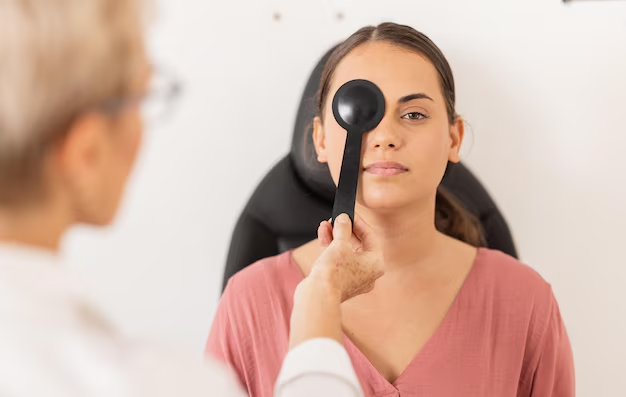Understanding the Potential for a Skin Cancer Cure: What You Need to Know
Skin cancer, a condition that affects millions globally, often prompts a pressing question: Is skin cancer curable? While the diagnosis can be daunting, understanding the nuances of treatment and prognosis can empower patients and their families. Let’s delve into the subject, examining different types of skin cancer, treatment options, and the potential for cure.
The Nature of Skin Cancer: What Are We Dealing With?
Skin cancer arises when skin cells undergo abnormal growth, primarily due to ultraviolet (UV) radiation from the sun or tanning beds. It's categorized into three main types:
- Basal Cell Carcinoma (BCC): The most common and least aggressive form.
- Squamous Cell Carcinoma (SCC): Frequently appearing in sun-exposed areas, it's more aggressive than BCC but still highly treatable.
- Melanoma: Less common but more dangerous, melanoma is known for its ability to spread to other parts of the body.
Understanding these categories helps in comprehending treatment approaches and their likely success.
The Curable Nature of Skin Cancer: Facts and Insights
Non-Melanoma Skin Cancer: High Cure Rates
Basal and squamous cell carcinomas are often labeled as curable skin cancers when detected early. They are primarily localized, making surgical removal highly effective. Here are some typical treatment options:
- Excisional Surgery: Removal of the cancerous tissue with a small margin of healthy skin. It is generally successful for both BCC and SCC.
- Mohs Surgery: A precision technique preserving as much healthy tissue as possible. Effective in areas like the face where tissue conservation is critical.
- Cryotherapy: Often used for superficial BCCs, this involves freezing cancer cells with liquid nitrogen.
Melanoma: Complex but Not Hopeless
While melanoma poses a greater challenge, early detection dramatically increases the chance of a cure:
- Surgical Excision: The primary approach involves removing the tumor and some surrounding tissue.
- Sentinel Lymph Node Biopsy: Helps determine if cancer has spread, guiding further treatment.
When melanomas are caught at an early stage (Stage 0 or 1), the five-year survival rate is exceedingly high. Advanced melanomas may require additional treatments:
- Immunotherapy and Targeted Therapy: Innovations like PD-1 inhibitors and BRAF inhibitors have markedly improved outcomes for many patients.
- Radiation Therapy: Occasionally used post-surgery to eliminate remaining cancer cells.
Prevention and Early Detection: Key to Proactive Management
Early detection remains the linchpin in managing and curing skin cancer. Simple actions can minimize your risks:
- Regular Check-Ups: Perform self-examinations monthly. Look for changes in moles, new growths, or any changes in the skin.
- Professional Skin Examinations: An annual visit to a dermatologist can be life-saving.
- Sun Protection Strategies: Daily sunscreen use (SPF 30 or higher), protective clothing, and avoiding midday sun are essential habits.
Navigating Potential Challenges: What If It's Not Curable Yet?
For some, curing skin cancer might not be immediately possible. However, treatment can still extend life and improve quality. In many cases, management becomes the goal, focusing on controlling the disease and minimizing symptoms.
- Palliative Care: Critical in advanced cases to manage symptoms and enhance life quality.
- Clinical Trials: For those with advanced or resistant cancer, participating in clinical trials might offer access to cutting-edge therapies.
The Emotional Component: Supporting Patients and Families
The journey with skin cancer includes an emotional dimension that deserves attention:
- Support Networks: Engaging with support groups or counseling services can provide a community of understanding and shared experiences.
- Family and Friends: The role of loved ones often includes assisting in daily care, attending appointments, and offering emotional support.
Skin Cancer Myths Debunked
There are numerous misconceptions about skin cancer that need clarification:
- "It's Just Skin Cancer": No cancer should be underestimated. Early detection and prompt treatment are crucial.
- "Dark Skin Can't Get Skin Cancer": While less common, individuals with darker skin tones are still at risk, especially for late-stage diagnoses.
- "Sun Screening Is Only for Sunny Days": UV rays penetrate clouds, making daily sun protection a must, even on overcast days.
Closing Reflections: A Path Forward
In conclusion, while not all skin cancers are currently curable, the prospects are bright with early detection and treatment. Advances in medical research continue to transform seemingly grim prognoses into manageable conditions. For individuals diagnosed with skin cancer, staying informed about the latest treatments and maintaining open communication with healthcare providers can guide effective care strategies.
Key Takeaways:
- Early Detection is Crucial: Regular skin checks and sun protection save lives.
- Most Skin Cancers Are Treatable: A majority of skin cancers, especially non-melanomas, have high cure rates with early treatment.
- Treatment Options Are Expanding: From surgery to targeted therapies, patients have multiple avenues for treatment.
- Support is Available: Emotional and social support is vital in navigating the journey.
Quick Summary and Consumer Tips:
🌞 Practice Sun Safety: Use sunscreen daily, wear protective clothing, and seek shade during peak sun hours.
👀 Be Proactive: Regularly check your skin for changes and consult a dermatologist annually.
💬 Stay Informed: Keep up with the latest treatment advancements and discuss options with your doctor.
🤝 Engage with Support Networks: Leverage family, friends, and support groups to maintain emotional well-being.
💉 Explore All Options: Don’t hesitate to discuss emerging treatments and clinical trials with your healthcare provider.

Related Articles
- Are Breast Cancer Lumps Painful
- Are Chills a Sign Of Cancer
- Are Colon Spasms a Sign Of Cancer
- Are Lytic Lesions Always Cancer
- Are Polyps Cancer
- Can a Blood Test Detect Cancer
- Can a Ct Scan Detect Cancer
- Can a Dexa Scan Show Cancer
- Can a Gastric Emptying Scan Show Cancer
- Can a Lung Biopsy Cause Cancer To Spread
